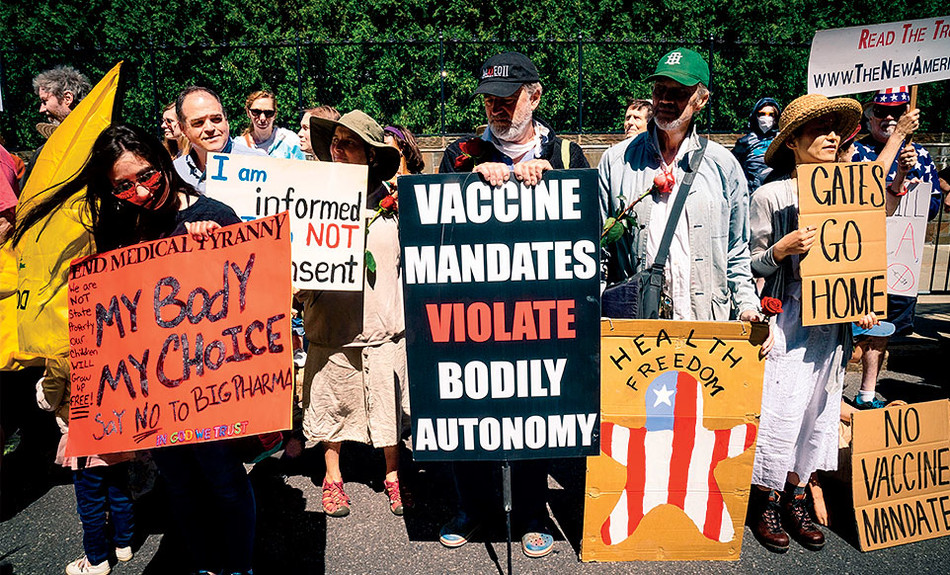This summer, the US entered a strange new phase in its fight against COVID-19, as the challenge of producing and distributing hundreds of millions of vaccine doses was finally conquered, only to be replaced by a new obstacle: persuading Americans to take them.
So how do you turn vaccine skeptics into adopters?
To find the answer, a group of Columbia physicians, computer scientists, and literary scholars are now using artificial intelligence to track people’s public conversations about the coronavirus vaccines on social media. By analyzing the language employed in millions of Facebook posts, tweets, and YouTube and Reddit comments, they hope to gain a deeper understanding of citizens’ concerns and ultimately help public-health organizations craft more compelling pro-vaccine messages.
The researchers, led by emergency-room physician Rishi Goyal ’01VPS, ’10GSAS and comparative-literature scholar Dennis Tenen, say that their computer-driven analysis has already yielded useful insights, showing that the anti-vaccination community is surprisingly heterogeneous, with vaccine skeptics motivated by a wide variety of political and ideological beliefs. They have also found that people in different segments of the anti-vaccination community tend to use distinct metaphors, symbols, and imagery when discussing their beliefs, thus enabling the Columbia team’s AI programs to automatically identify skeptics and deduce their specific viewpoints. The researchers say that if public-health officials were to target these individuals with outreach campaigns that speak to their concerns, using language that is familiar to them, tremendous progress could be made in the fight against COVID-19. For example, they suggest that vaccine skeptics who are a part of the “medical freedom” movement, which opposes any public-health policies that curtail personal liberties, might respond favorably to messages that encourage people to exercise their right to protect themselves against disease. Similarly, they say that Americans who distrust authority figures in government and academia might be persuaded to get vaccinated if they see testimonials from fellow residents who opted to get the shot not because anyone else told them to do so but because of research they did on the topic themselves.
The Columbia team, whose work is supported by the Columbia World Projects initiative, is collaborating with Maine’s Center for Disease Control and Prevention and the health department of Ulster County, New York, to craft microtargeted vaccine messaging, with the goal of entering additional partnerships across the country in the months ahead.
“If we can show that our methods were able to increase vaccine uptake and vaccine confidence, that would be incredible,” says Goyal.



